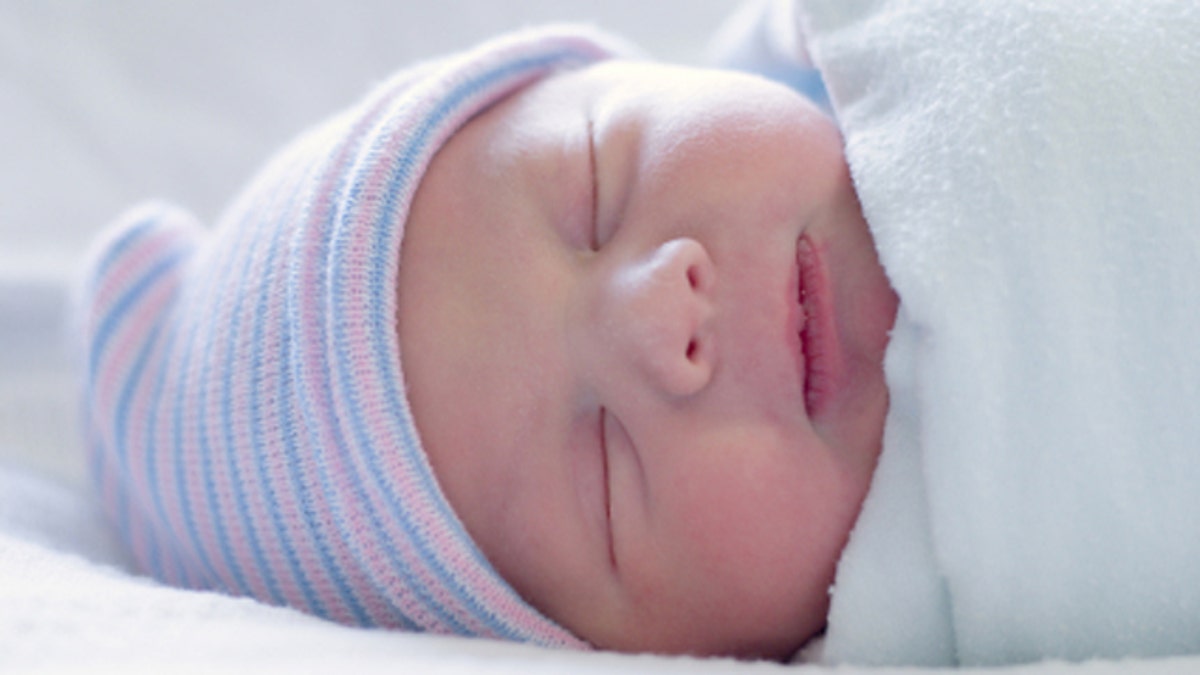
The government's latest infant bed-sharing numbers show a troubling trend: the percentage of U.S. babies sleeping with parents or another child more than doubled since the early 1990s, despite public health messages linking the practice with sudden infant death syndrome.
Nearly 14 percent of adults, mostly mothers, surveyed in 2010 said their infants usually shared a bed, either with parents or another child, instead of sleeping alone in a crib. That was up from about 7 percent in 1993, and the increase was mainly among blacks and Hispanics. The practice had leveled off among whites after an increase in the 1990s.
Bed-sharing was most common among blacks; nearly one-third of those surveyed said their infants usually shared a bed.
"That's a concern because we know that blacks are at increased risk for SIDS," said study co-author Marian Willinger of the National Institute of Child Health and Human Development, which funded the study. "We want to eliminate as many risks as we can for everybody, particularly in that population where we're seeing increasing disparities."
SIDS refers to deaths in the first year of life that remain unexplained after autopsies and thorough investigations of the death scene and infants' medical history.
Accidental suffocation in bed is also more common among black infants, although the study didn't examine infant deaths or accidents associated with bed-sharing.
The study was published online Monday in JAMA Pediatrics.
The government began annual surveys on infant sleep practices in 1993, after the American Academy of Pediatrics recommended that infants sleep on their backs to prevent SIDS. The new study analyzed 1993-2010 telephone surveys involving nearly 19,000 parents with infants up to 7 months old. More than half the participants since 2006 said doctors had never mentioned bed-sharing or its risks.
"That in and of itself is kind of shocking ... because the recommendations have long been out," said SIDS expert Dr. Fern R. Hauck, a family medicine professor at the University of Virginia.
About 2,000 U.S. infants died from SIDS in 2010 and the rate has been flat for the past few years. Causes are unknown but circumstances that increase risks include premature birth, parents' smoking and sleeping on soft surfaces with pillows and blankets. Many doctors think bed-sharing is risky because sleeping parents could roll onto infants, or they could get tangled in loose bedding.
A JAMA Pediatrics editorial questions whether bed-sharing per se is dangerous, citing a study that found many SIDS infants had slept on sofas - potentially riskier than beds - with parents who smoked or had been drinking, factors that could have contributed. Bed-sharing has benefits including making it easier for moms to breast-feed at night, the editorial says.
The pediatricians' group recommends that infants sleep near parents' bed to facilitate breast-feeding and supports government-sponsored campaigns emphasizing that placing babies to sleep on their backs on a firm mattress and not in a bed shared with others is the safest sleep practice.
Those efforts are credited with reducing the number of infants placed to sleep on their stomachs since the 1990s but appear to have had little effect on bed-sharing.
